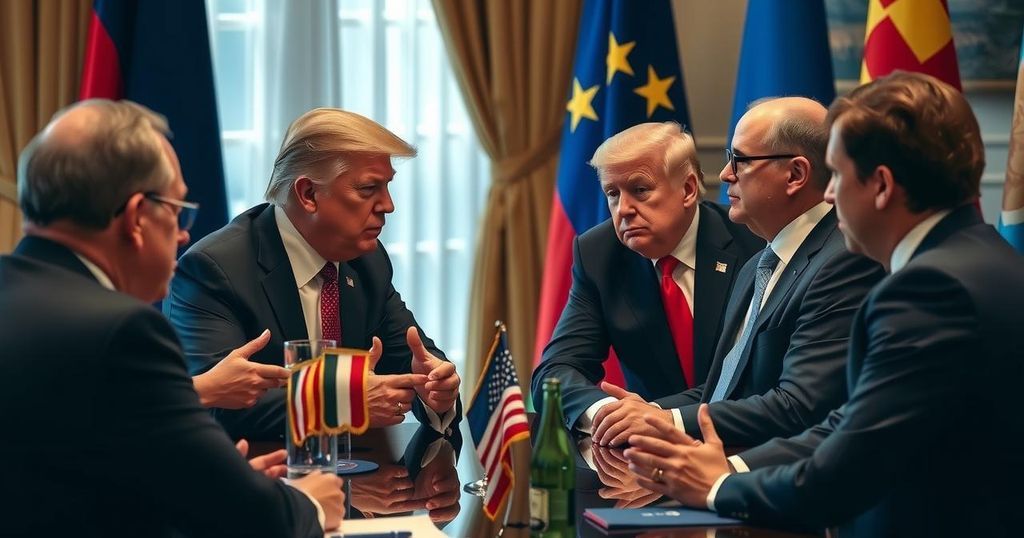Donald Trump’s potential return to the presidency poses risks of significant trade tariffs on imports, which could heavily impact European economies, particularly Germany’s automotive industry. His proposed Reciprocal Trade Act could lead to retaliatory measures from the EU, escalating trade tensions. This scenario could worsen economic conditions in Europe, while affecting American consumers as well.
As the possibility of Donald Trump resuming presidency looms, Europe finds itself preparing for a potentially tumultuous trade relationship should he reclaim the White House. Trump’s proposed policies, outlined in fervent speeches like the one during a recent Pennsylvania rally, threaten to impose hefty tariffs ranging from 10% to 20% on imports, aiming to prioritize American-made goods and enacting a “Reciprocal Trade Act” that could flip trade norms on their heads. With a certain brashness, Trump commented on the European Union and its member states, suggesting that they have been unfair in their trading practices. “I’ll tell you what, the European Union sounds so nice, so lovely, right? All the nice European little countries that get together… They sell millions and millions of cars in the United States. No, no, no, they are going to have to pay a big price.” His remarks underscore an aggressive approach that could enforce financial penalties on European industries, especially Germany, known for its automotive prowess, which might feel the brunt of these tariffs. These discussions are more than just political banter; they signal potential economic ripples that could shake the foundations of trade already valued at nearly 20% of all EU exports to the U.S. A report from the London School of Economics predicts Germany could see its GDP contract by 0.23% under these new tariff conditions, intensifying economic struggles amidst an ongoing period of underinvestment. As anticipation builds for the U.S. elections, Vice President Kamala Harris continues to advocate against such tariffs, warning of possible retaliatory measures that could lead to a trade war. The stakes grow higher with the EU urging a robust response, as noted by one diplomat who remarked that the EU “will hit back fast, and we will hit back hard.” Given Trump’s protectionist policies during his previous term, including tariffs on steel and aluminum, the landscape appears ripe for renewed tensions. In a landscape where trade impacts everyday lives, it remains to be seen what economic consequences these tariffs might usher in for American citizens, which studies indicate could be detrimental to their real income. As the narrative unfolds, Europe is left at the precipice, eagerly watching how the U.S. election will shape trade relations and geopolitical dynamics in the coming years.
The article discusses the potential implications for European trade relations should Donald Trump win the presidency again. Trump’s trade proposals, including significant tariffs on imports, threaten to alter the dynamics of U.S.-European trade, which currently involves significant economic interdependencies. This backdrop sets the stage for understanding the more substantial economic consequences such measures could entail, especially for industries that heavily rely on transatlantic trade, such as the automotive sector in Germany. The commentary highlights the overarching concern among European leaders regarding how Trump’s protectionist policies may reignite trade wars, affecting economies on both sides of the Atlantic.
In summary, the possibility of Donald Trump reigniting a protectionist rampage has Europe on edge, particularly regarding the trade policies he might implement. His proposed tariffs could severely impact key industries, most notably the automotive sector in Germany, as well as provoke retaliatory measures from the EU. With the stakes higher than ever, the outcome of the U.S. election could signal not merely a change in leadership but a pivotal shift in transatlantic trade relations that could reverberate for years to come.
Original Source: fortune.com

Leave a Reply